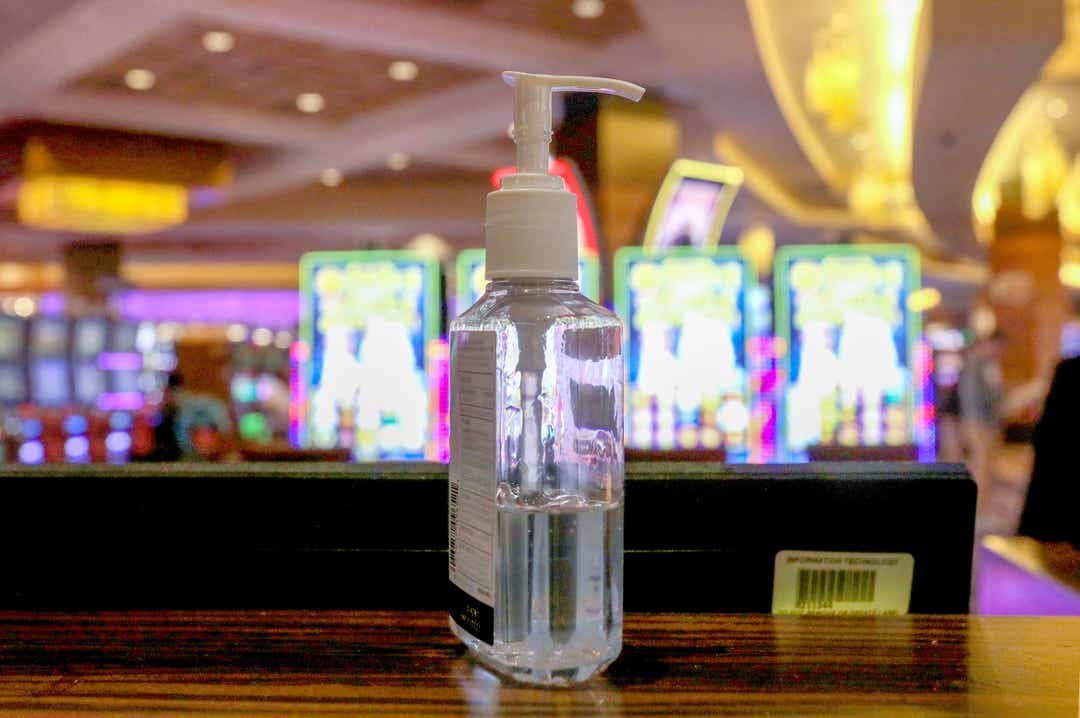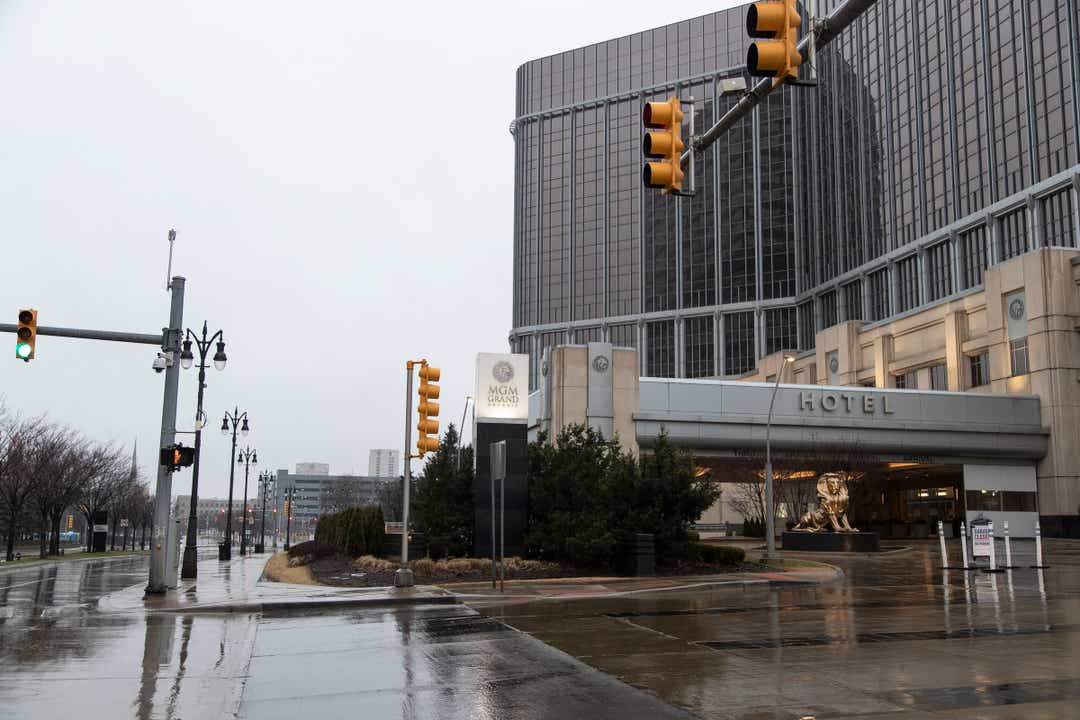
One revelation to emerge from Detroit's 2013-2014 bankruptcy was the extent of the city's dependence on tax receipts from the three casinos. The properties pumped more than $170 million a year into the fraying municipal budget, even during the worst of the Great Recession.
"Casino revenue is the single most stable source of revenue available to the city,” Detroit's emergency manager said at the time. “Without it, the city couldn’t operate.”
But since March 16, when the coronavirus pandemic hit and Gov. Gretchen Whitmer's executive orders closed all three casinos, $0 has been generated in wagering taxes — upending Detroit's budget and once again destabilizing its finances.
Compounding the problem are numerous other pandemic-related revenue losses, including from canceled Tigers, Pistons and Red Wings games, no auto show or conventions and fewer downtown office workers and visitors.
The extent of the city's revenue shortfall — and whether its financial situation reaches a crisis level — will likely depend on how soon the casinos and Detroit's other businesses and attractions reopen and return to somewhat normal business.
"It's very serious," said Eric Lupher, president of the nonpartisan Citizens Research Council of Michigan. "We are talking about a major loss of income. It is certainly something that they need to keep an eye on.”
Detroit is losing about $600,000 a day in tax revenue from the shutdown of MGM Grand, MotorCity and Greektown casinos, according to city estimates. Casino wagering taxes are about 16% of Detroit's general fund revenue and its third largest revenue source, after local income taxes and state revenue sharing payments.
Whitmer has yet to say when she will allow Detroit's casinos to reopen. And when they do reopen, the casinos will likely be restricted to less-than-full capacity for a period of weeks or months.
The casinos fall under the governor's latest shutdown order that runs through June 12, and which she may decide to extend into the summer.
The 24 tribal casinos within Michigan are not subject to state regulation or Whitmer's executive orders, yet they all voluntarily followed her shutdown dates until recently.
At lease one tribal casino reopened last week — Odawa Casino Mackinaw — and several others are preparing to open this Friday or shortly after.
Some tribal casinos plan to limit the number of customers allowed inside, strictly enforce social-distancing and cut the number of working slot machines and table games.
They could also begin doing temperature checks at the entrance, conducted by staffers in protective gear who can deny entry to people with temperatures of 100.4 or above, according to a news release issued Tuesday by four tribes.
“COVID-19 has impacted all aspects of everyday life and, as such, the casinos will operate under a ‘new normal,' " Jamie Stuck, chairperson of the Nottawaseppi Huron Band of Potawatomi Tribal Council, said in a statement.

Reduced capacity
Detroit Mayor Mike Duggan has said the city's casinos may initially reopen at only 25% to 30% capacity, and that it could be six months or longer before they approach 100% capacity.
Officials with the Michigan Gaming Control Board said they are in discussions with the casinos about health and safety protocols for when the gambling halls reopen. They declined Tuesday to share any details, but said the new rules will be announced before the casinos reopen.
Restrictions would likely cut into the properties' tax revenue potential, said Alex Calderone, managing director of the Birmingham-based Calderone Advisory Group and a casino industry observer.
"If you have fewer machines that are available and table seats for people to play at, then it’s simple math," he said. "It's impossible to hit a pre-coronavirus level of revenue."
Total gambling revenues at the Detroit casinos were down 39% year-over-year through April, according to the Michigan Gaming Control Board. Representatives for MGM, MotorCity and Greektown did not return messages seeking comment for this story.
Demand not the problem
Casino reopenings in other states have shown that many people are eager to return to their slots and card tables. News stories have described customers driving two or more hours and then waiting in lines to get inside.
The reopened casinos typically mandate social-distancing guidelines, including face masks and temperature checks.
Calderone predicts that public demand for the Detroit casinos will be strong once they do reopen.
"I don’t think masks and temperature checks at the door will drive away people who otherwise wanted to gamble," he said. "The demand will far exceed the reduced occupancy levels at which the casinos will be permitted to reopen."
The state Legislature in December passed a package of bills that will legalize online gambling in Michigan, including betting on sports, although only through internet portals tied to the existing Detroit casinos and tribal casinos.
The online portals can go live after the Michigan Gaming Control Board finishes developing the rules to govern the games. The rules are expected to be done by early 2021 or possibly late this year, a gaming board representative said.
"Economically speaking, the No. 1 thing that the operators and state and local governments can do to mitigate the (pandemic's) damage is to race toward the implementation of online gaming and sports wagering," Calderone said. "It will not be a perfect substitute for the in-person experience when it comes to revenue generation, but would definitely recapture at least some of the market, particularly as more sports come back."
Detroit casino money
The three casinos generated $184 million in wagering taxes for Detroit in the last full budget year before coronavirus hit. The city also received additional millions from separate fees on 1.25% of each casino's adjusted gross revenues. That revenue figure was not available Tuesday.
The state of Michigan also receives tax proceeds from the Detroit casinos. Last year, it took in $117.7 million, records show.
This year's casino shutdowns, along with other pandemic-related revenue losses, left Detroit with a $348 million budgetary shortfall over 16 months. The city filled that gap by using $50 million, or 47%, of its rainy day fund, and making various budget cuts, including salary reductions, cuts to projects such as road repairs and blight remediation, and about 200 layoffs.
Under its latest projections, the city anticipates forgoing $112 million in casino taxes and fees revenues between March 2020 and June 2021 due to the pandemic.
"We have assumed that those casinos are not operating at full capacity for over a year," said Detroit's Chief Financial Officer David Massaron. "And we anticipate that when they restart, it will be at a lower density — so fewer people, fewer concerts and entertainment events."
Massaron emphasized that the city has so far managed to adjust to the lost revenues, and will have a balanced budget for the new fiscal year starting July 1.
“Ultimately what will determine the success of the city, and the success of every city in America, will be how effectively and safely the reopening process is done," Massaron said.
Contact JC Reindl at 313-222-6631 or jcreindl@freepress.com. Follow him on Twitter @jcreindl. Read more on business and sign up for our business newsletter.
"much" - Google News
May 27, 2020 at 05:13PM
https://ift.tt/2XAjfnK
Closed casinos are huge loss for Detroit: How much it could hurt - Detroit Free Press
"much" - Google News
https://ift.tt/37eLLij
Shoes Man Tutorial
Pos News Update
Meme Update
Korean Entertainment News
Japan News Update
Bagikan Berita Ini














0 Response to "Closed casinos are huge loss for Detroit: How much it could hurt - Detroit Free Press"
Post a Comment